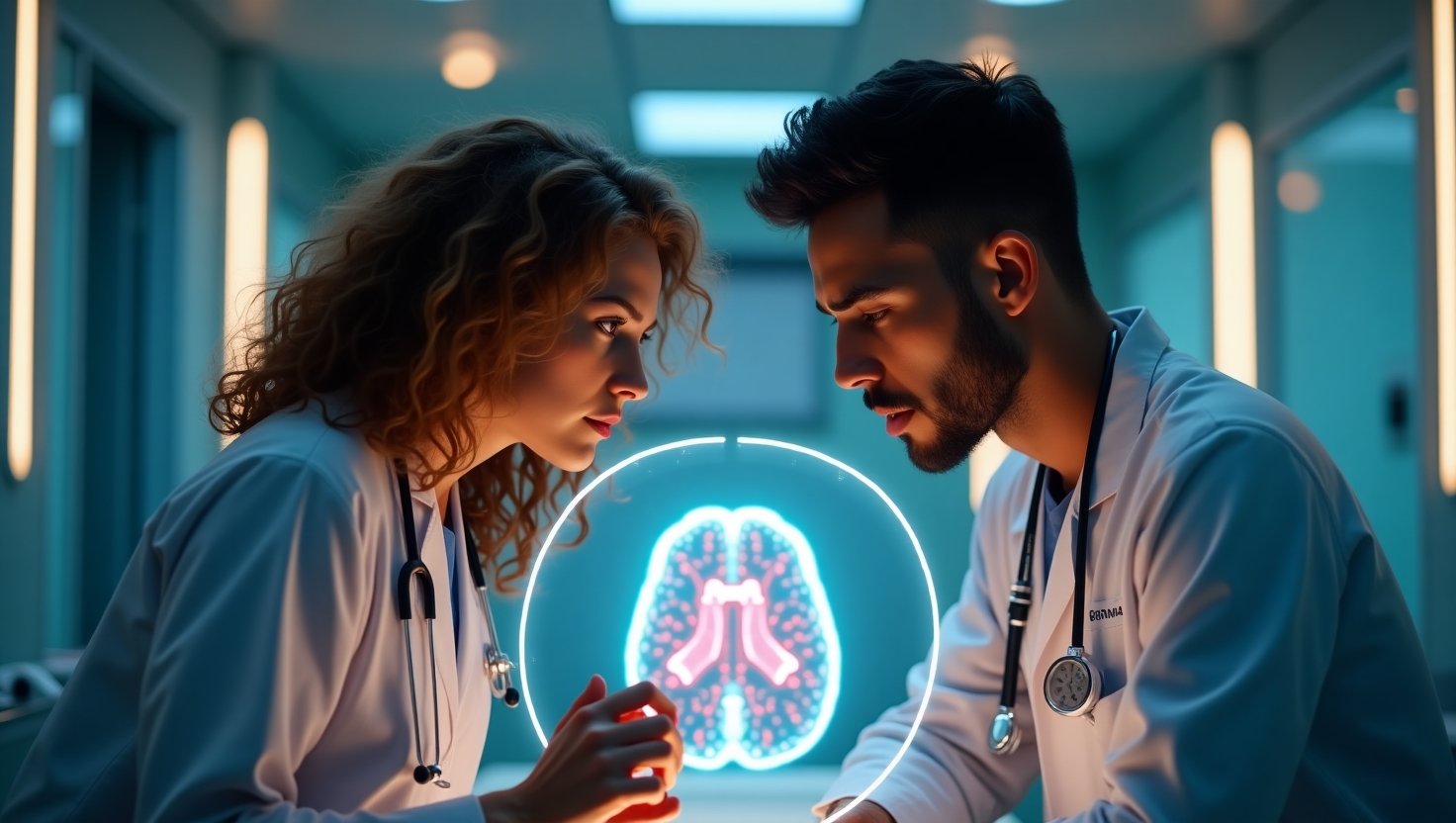AI Medical Diagnostics: Transforming Patient Care with Intelligent Technology
Introduction
In the rapidly advancing world of healthcare, AI Medical Diagnostics stands out as a beacon of transformative potential. By harnessing the power of AI healthcare, diagnosis technology has reached unprecedented levels of accuracy and efficiency, significantly elevating patient care and streamlining healthcare automation. This blog will delve into these revolutionary changes, illustrating how these intelligent systems are reshaping the medical landscape and predicting future impacts on patient outcomes.
Background
AI Medical Diagnostics refers to the application of artificial intelligence in evaluating patient data to aid in diagnosing diseases. In modern medicine, this approach signifies a major leap forward. Unlike traditional methods, which relied on the subjective judgment of human clinicians, AI-driven solutions utilize machine learning in medicine to analyze vast datasets with impressive precision.
Historically, diagnosis technology has evolved from basic observational techniques to sophisticated imaging and laboratory tests. Yet, it is with the advent of AI that we’ve seen a paradigm shift. These systems can process medical imagery, genetic data, and clinical histories at unmatched speeds, identifying patterns and correlations that may elude human doctors.
Machine learning algorithms drive AI healthcare systems by \”learning\” from vast amounts of medical data. This not only enhances diagnostic accuracy but also introduces a level of consistency and data integration previously unattainable. Akin to how GPS systems revolutionized navigation by processing satellite data, AI aids physicians in steering through complex medical information, thus pinpointing diagnoses with precision.
Trend
The integration of AI healthcare solutions is swiftly gaining momentum. Studies demonstrate that AI-powered tools have consistently achieved impressive accuracy rates. For instance, Microsoft’s MAI Diagnostic Orchestrator (MAI-DxO) has shown a remarkable ability to diagnose patients with an 80% accuracy rate, significantly outperforming the 20% accuracy of human physicians involved in comparative tests[^1^] [^2^].
Such statistics underscore a growing acceptance and reliance on AI in improving diagnostic outcomes. By efficiently analyzing data and suggesting less expensive procedures, these systems not only enhance patient care but also contribute to cost reduction in medical diagnosis.
Insight
Industry stalwarts such as Microsoft, supported by visionaries like Eric Topol, assert that AI Medical Diagnostics offers numerous benefits. A notable feature is the potential for substantial cost reductions, achieved through more efficient test selection and accurate diagnosis. Topol, a leader in digital medicine, often highlights the role of machine learning in medicine in driving these advancements, emphasizing its importance in delivering high-quality patient care[^1^].
However, potential challenges including bias in AI training data and ethical considerations must be addressed. Ensuring diverse and representative datasets is crucial to minimizing bias and promoting equitable healthcare outcomes. Just as a chef must have a variety of ingredients to create a balanced dish, AI models require diverse data inputs to ensure fairness and accuracy in their predictions.
Forecast
Looking forward, the future of AI Medical Diagnostics seems promising, with potential advancements over the next 5-10 years poised to further disrupt the healthcare sector. As AI-based technology continues to evolve, we can anticipate even greater improvements not only in diagnostic accuracy but also in the treatment and management of diseases. Future healthcare systems might resemble highly efficient assembly lines, where automation and precise technology reduce error rates and enhance patient satisfaction.
AI-driven diagnosis technology will become increasingly integral to personalized medicine, offering tailored healthcare solutions and, consequently, better patient outcomes. The integration of real-time data processing and AI analytics may even foresee diseases before symptom onset, profoundly impacting preventative care strategies.
Call to Action
To harness the full potential of AI Medical Diagnostics, healthcare professionals and stakeholders must remain informed and engaged with emerging AI advancements. Embracing these technologies can enhance practice efficiency, reduce costs, and ultimately improve patient care outcomes. As this field continues to evolve, being proactive about these changes will ensure that medical practices remain at the forefront of innovation.
For more insights into recent AI healthcare breakthroughs, explore the related articles on Microsoft’s MAI Diagnostic Orchestrator and its transformative impact on medical superintelligence[^1^].
—
Citations:
1. \”Microsoft’s new AI system, the MAI Diagnostic Orchestrator (MAI-DxO), has demonstrated the ability to diagnose patients four times more accurately than human doctors, according to company claims.\” – Wired
2. \”Microsoft says its powerful new AI tool can diagnose disease four times more accurately and at significantly less cost than a panel of human physicians.\” – Wired
[^1^]: https://www.wired.com/story/microsoft-medical-superintelligence-diagnosis/
[^2^]: https://www.wired.com/story/microsoft-medical-superintelligence-diagnosis/

